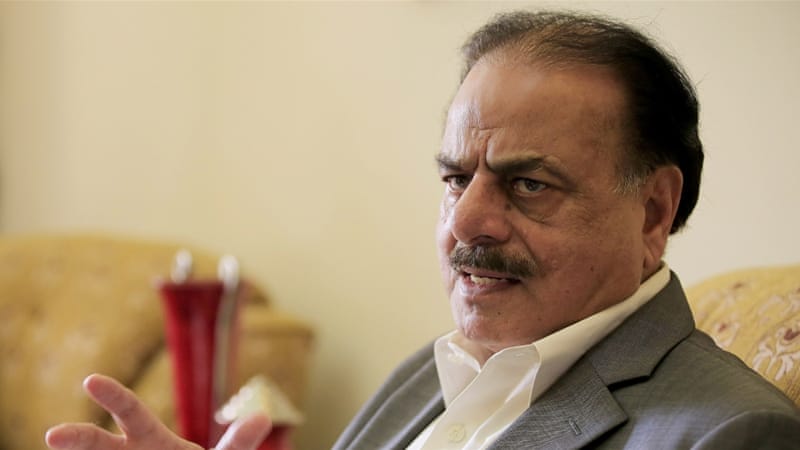88m3
Fast Money & Foreign Objects
Former head of Pakistan's powerful spy agency dies
Hamid Gul, who was instrumental in the formation of the Taliban, died of brain haemorrhage at the age of 79.
16 Aug 2015 04:46 GMT | War & Conflict, Politics, Pakistan, Military, Asia
Hamid Gul, who was instrumental in the formation of the Taliban, died of brain haemorrhage at the age of 79.
16 Aug 2015 04:46 GMT | War & Conflict, Politics, Pakistan, Military, Asia
- Hamid Gul: Taliban is the future

Gul recently attended funeral prayers for Afghan Taliban founder Mullah Omar [Getty Images]
Hamid Gul, the former head of Pakistan's powerful intelligence agency who strongly backed the Taliban, has died of a brain haemorrhage at the age of 79.
Gul, who was a military commander in the Pakistani Army in the 1980s, died on Saturday night at a military hospital in Muree, 50km northeast of the capital Islamabad.He served as the head of the country's Inter-Services Intelligence (ISI) agency from 1987 to 1989.
A controversial figure, he became a strong backer of the Taliban government in Afghanistan and often blamed the US and India for instability in Pakistan.
Hamid Gul: Taliban is the future
Pakistani Prime Minister Nawaz Sharif extended his condolences over Gul's death.
Professor Akbar Ahmed, the chair of Islamic Studies at the American University, and also a former Pakistani Ambassador to the UK, told Al Jazeera that it was Gul’s career in the army that gave him the credibility to become such a politically renowned figure.
He was also renowned for his anti-US rhethoric
"He still talked about the Taliban perpetrators of crimes and violence as saviours, but in reality we now know these people only produce violence and bloodshed," Ahmed said.
"His career in the army gave him the credibility he needed to become such a huge player in radical Islamic movements."
Ahmed said Washington and Delhi would be relieved over Gul's death, as they regarded him as a "hostile force".
During the Bush administration, the US sought to put Gul on a UN list of international terrorists but their efforts were blocked by the Chinese delegation.
Former head of Pakistan's powerful spy agency dies



